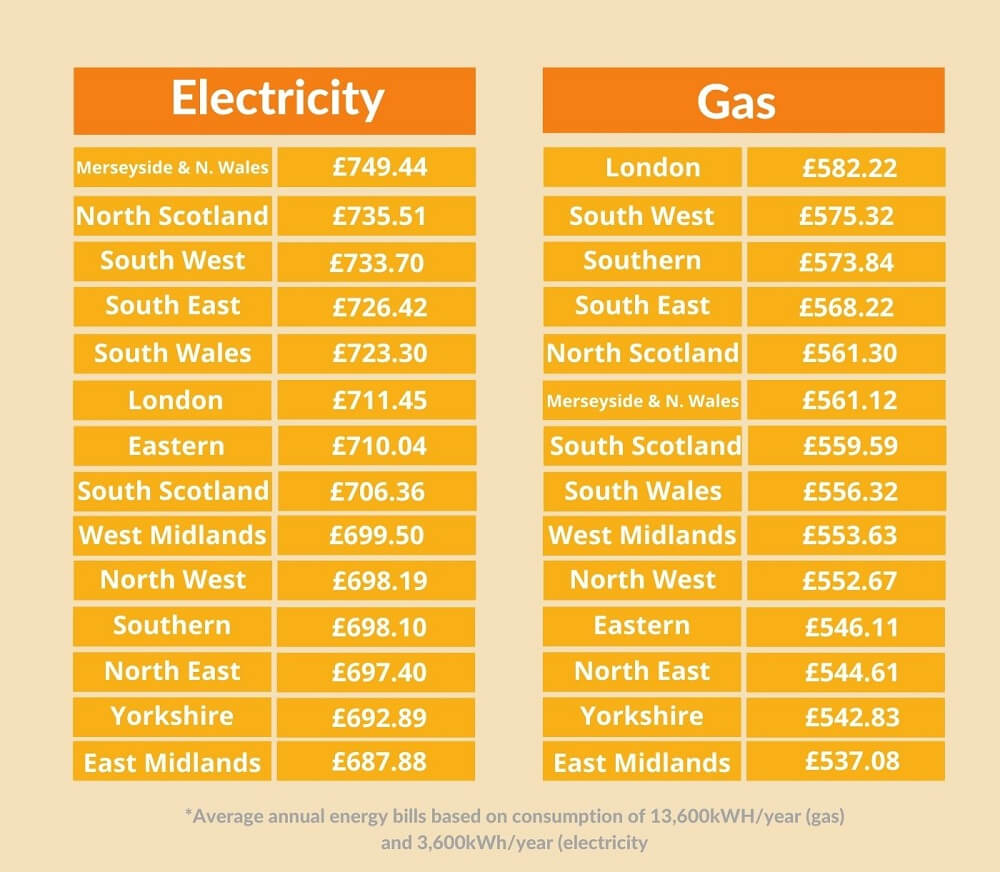Energy bills are something most of us dread receiving, especially when it reaches the winter months where we spend more time indoors, lights are on for longer, and we start to rely on our heating systems to stay toasty and warm. Most of us will do anything to keep the bills low, whether that’s telling the kids to put another layer on before touching the radiators or becoming somewhat of a dictator over the TV being left on whilst nobody is in the room.
Whatever your energy saving methods are, it’s vital to have a baseline of how much money you should be spending so that you know if your bills are adding up to a normal amount, or if they are a little higher than the average. In this piece, we’ll explore how much the nation is spending on gas and electricity, and how this amount differs based on location and other factors.
Average Energy Bills
Each year, the average UK household spends £1,264 on energy bills. This equates to around £105.33 a month. From data, we can see that more money is spent on electric than gas.
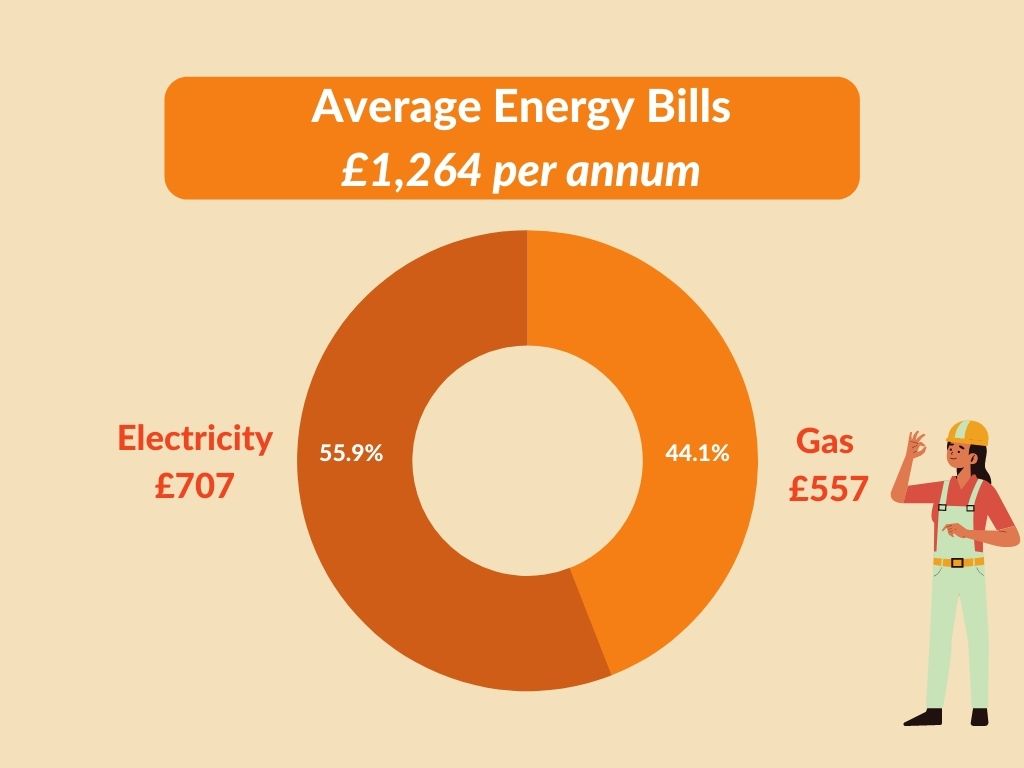
With the UK banning gas boilers in new builds in 2019, and with the government set to ban gas boilers completely from 2025, we are likely to see electricity bills increasing, and gas bills falling over the next decade or so[i].
Ofgem (the UKs energy regulator) rose the cap on energy bills in April, meaning millions of households are paying around £96 more a year than they were in 2020. For perspective on how much energy prices have risen, Compare The Market claim that the average domestic price of gas has seen an increase of 221% over the last 20 years, whilst electricity prices have risen by 193%[ii].
Which region has the highest bills?
Merseyside & North Wales have the highest reported energy bills – with the average combined energy bill coming in at over £1,310 a year. London, surprisingly, comes 5th, with Londoners spending around £20 less a year.
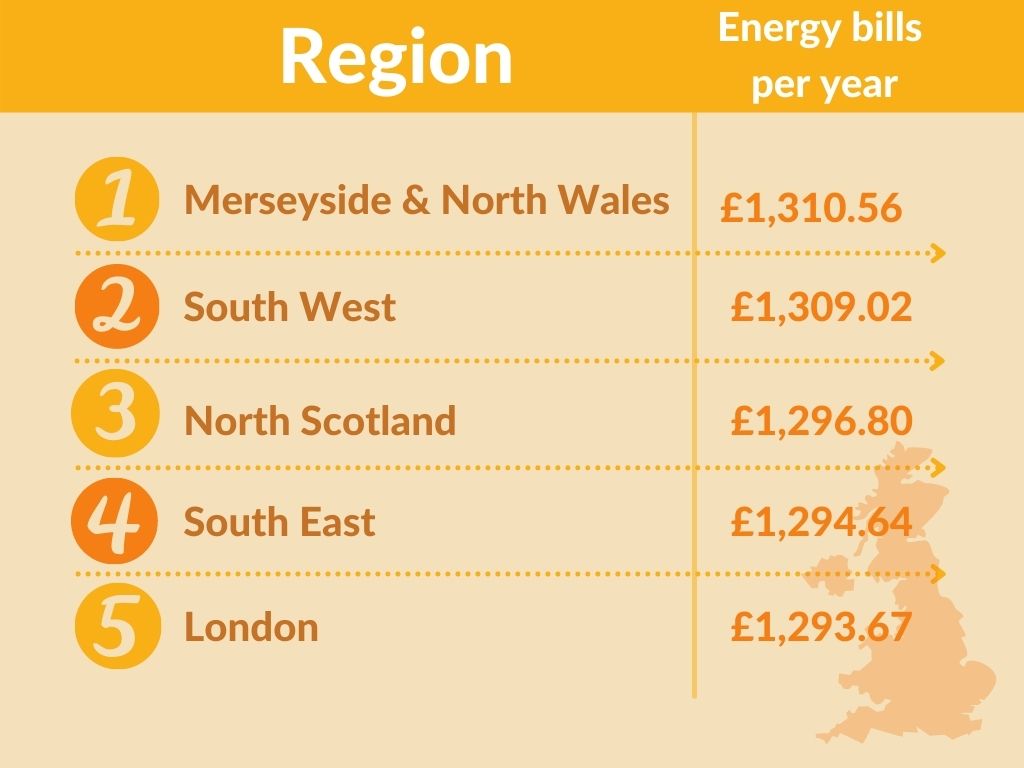
The region that has the lowest bills overall is the East Midlands, who shell out an average total of £1,224.96 a year on their gas and electric.
Data shows that London spends the most on gas bills, whilst Merseyside & North Wales have the highest electricity bills.
Data from gov.uk
Payment Methods
In the UK, there are several methods to pay your energy bills. The most popular method is through setting up a direct debit, which the vast majority of households do. Credit and pre-payment meters are much less popular.

COVID-19 and energy bills
The COVID-19 pandemic affected, and continues to affect, hundreds of thousands of people in the UK. Lockdowns caused businesses to close temporarily (permanently in some cases), which led to job losses – meaning a lot of people were unable to pay their bills.
There was a sharp increase in energy accounts that were in arrears during the 2nd quarter of 2020.
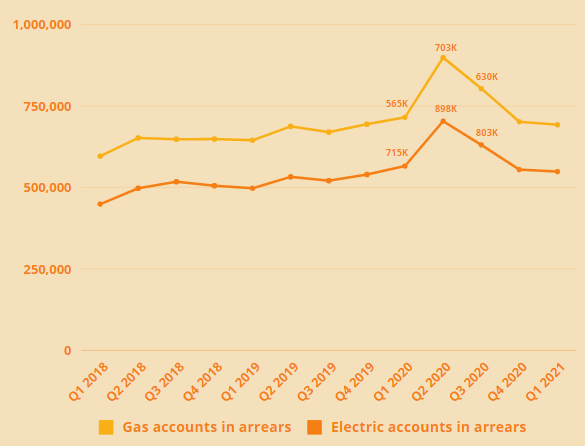
We can see a correlation with this and unemployment rates rising.
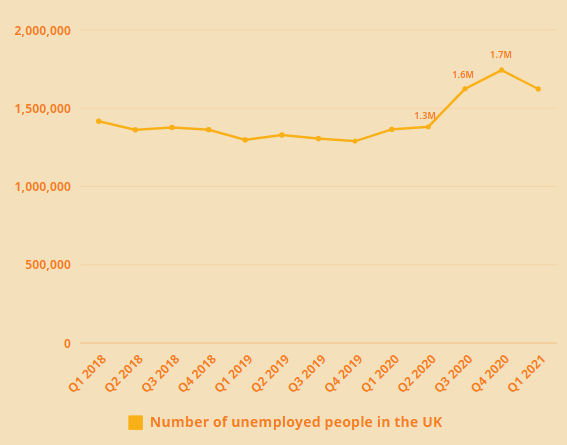
This seems to be levelling off now that the unemployment rate is beginning to normalise again.
There was no obvious increase in the amount people were paying for their bills over the COVID-19 lockdown. This is because 15 million+ households were protected by a ‘price cap’, which stops people being charged excess amounts on their energy bills whilst still having the opportunity to shop around for cheaper suppliers[iii].
How to reduce your energy bills
If you think your energy bills are too high, there are plenty of different ways you can reduce them. These are our top tips.
- Install intuitive heating controls to help you control the amount of energy being used in your house
- Shop around for suppliers who offer better deals in your area
- Update your heating systems, insulation, double glazing, etc. to ensure your home is being heated efficiently
- Replace electric appliances with energy efficient alternatives
Look at our recommended energy saving gadgets.
Graph Sources
Article Sources
[i] https://www.edfenergy.com/heating/advice/uk-boiler-ban
[ii] https://www.energylivenews.com/2019/08/13/cost-of-energy-has-tripled-in-the-last-20-years/
[iii] https://www.gov.uk/government/news/11-million-households-to-make-savings-as-government-extends-cap-on-energy-bills

